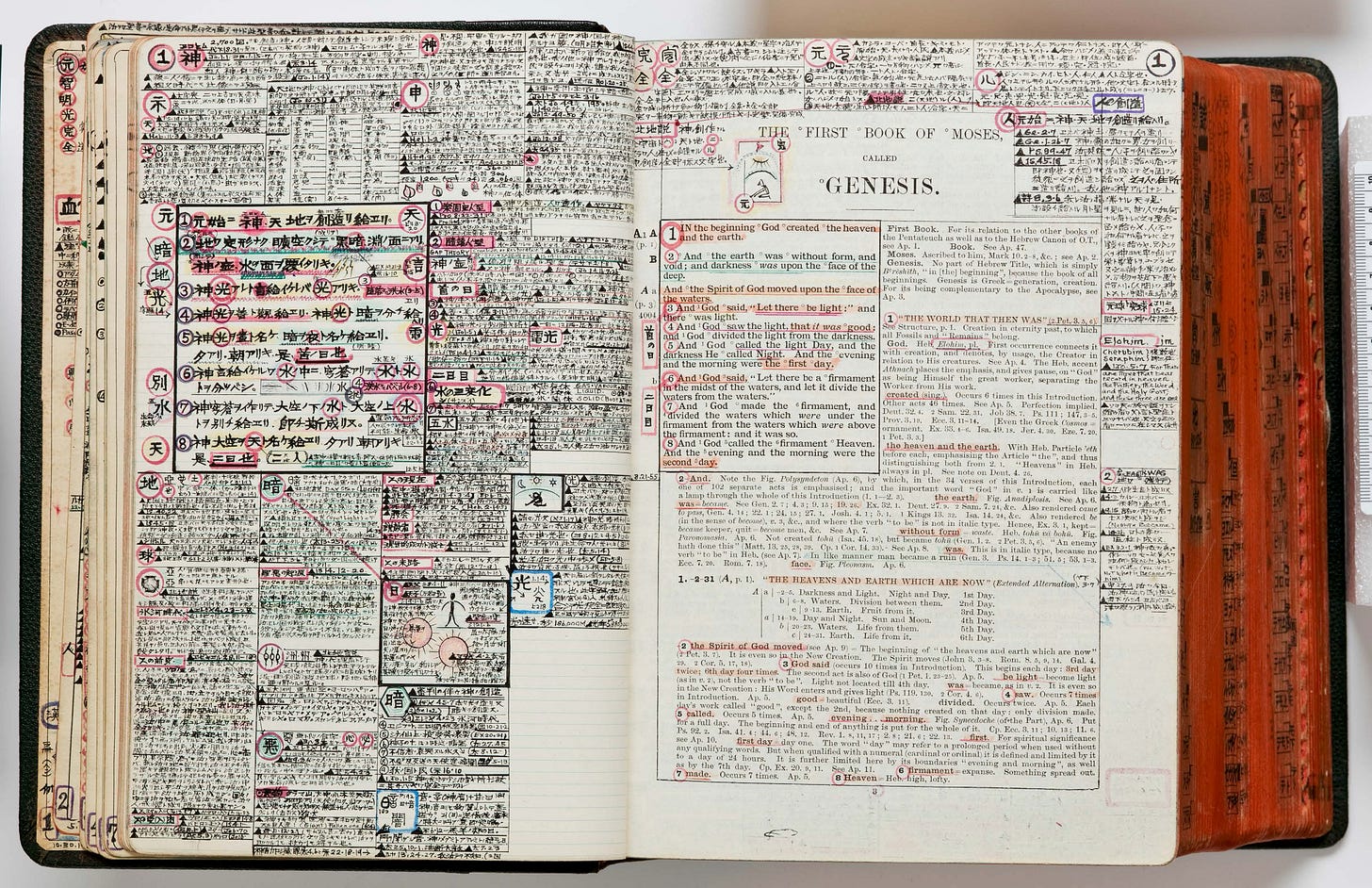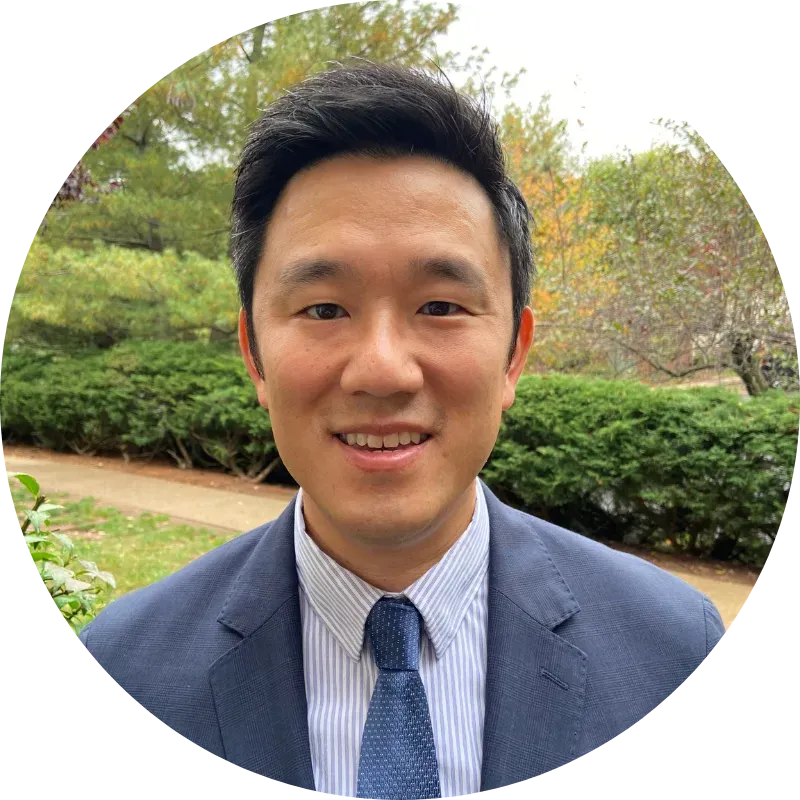Biblical Theology in Asian America: Expanding Our Canonical Imagination
The Future of Asian American Theology, Part III

By Dr. David C. Chao, Director of the Center for Asian American Christianity
This is the third in a series of five essays casting vision for Asian American theology.
A second foundational pillar for the future of Asian American theology is the cultivation of a robust biblical theology that embraces the full theological grammar of the biblical canon. Historically influenced by Protestant traditions, many Asian American churches have devoted considerable attention to the Gospels and Pauline epistles. This focus has commendably highlighted the centrality of Jesus Christ, the necessity of personal faith, and key doctrines such as justification by faith. Yet, while these texts remain central and indispensable, they do not fully encompass the richness of Scripture. To nurture a deeper and more holistic theological imagination, this essay encourages Asian American faith communities to engage Scripture’s diverse genres and allow the full breadth of God’s revelation to enliven their discipleship and witness.
The biblical canon includes creation narratives, covenantal laws, poetic laments, wisdom literature, apocalyptic visions, prophetic calls to justice, and reflections on providence and the hiddenness of God. This array not only demonstrates God’s multifaceted self-disclosure but also speaks directly to the complexities of human experience. For Asian American Christians, exploring this broader range of texts provides tools for navigating kinship networks, intergenerational identity, and the call for justice, reconciliation, and belonging. It resists any impulse to reduce faith to individual conversion or private devotion alone, instead inviting us to recognize the fullness of our socially embodied life in Christ.
Consider the creation accounts in Genesis, which affirm both the dignity of all humanity and the goodness of the world God has made. These foundational themes provide a grounding for reflecting on identity, vocation, and stewardship—questions particularly resonant for many Asian Americans who grapple with migrational transitions and geographical displacement and seek clarity about their place in the world. Alongside these creation motifs, biblical narratives of providence, such as Joseph’s story, and the wisdom literature of the Old Testament showcase God’s steadfast presence amid hardship and upheaval. Taken together, they offer powerful reassurance to families who have experienced displacement and resettlement, underscoring that divine guidance endures even when the path forward remains uncertain.
The genre of lament, spanning Psalms, Lamentations, and Job, offers a sacred language for expressing suffering without forfeiting communion with God. In communities shaped by exclusion, racial marginalization, or the silent burdens of migration, such vulnerability can become a profound catalyst for healing and solidarity. Similarly, wisdom literature provides practical counsel for addressing interpersonal tensions that frequently arise in intergenerational and intercultural church contexts. Through lament and wisdom alike, Asian American faith communities can confront unspoken wounds and chart meaningful paths toward resilience and reconciliation.
Apocalyptic texts—found in Daniel, Revelation, and elsewhere—extend a vision of hope and perseverance in the face of oppressive structures. They embolden Asian American Christians to confront entrenched racial and social injustices with trust in God’s ultimate sovereignty. In harmony with this apocalyptic perspective, the prophetic literature compels faith communities to grapple with issues such as racial capitalism, economic inequality, and environmental harm. By embracing a ministry of reconciliation and restoration, believers attest to the transforming power of the gospel. When these often-overlooked dimensions of Scripture are woven together with the centrality of the Gospels and Pauline writings, Asian American biblical theology gains a more comprehensive and resilient character, speaking to family and social complexities while proclaiming the breadth of God’s word.
Through lament and wisdom alike, Asian American faith communities can confront unspoken wounds and chart meaningful paths toward resilience and reconciliation.
Facilitating Sanctification Through Expanding Canonical Imagination
Engaging the wide sweep of Scripture is not merely an academic pursuit; it is profoundly formational. In many Asian American churches that draw significantly from Protestant heritage, the emphasis on the Gospels and Pauline letters has rightly highlighted doctrines of personal conversion and justification. Still, sanctification—the ongoing process of growing in Christlikeness—calls for a broader biblical lens. An expansive reading of Scripture nurtures godly character, fortifies communal bonds, and equips believers to address the diverse needs of both individuals and the wider community.
Broadening our canonical imagination reinvigorates every facet of congregational life, including preaching, Bible study, worship, and pastoral care. Sermons that draw on wisdom or apocalyptic texts can guide believers through seasons of sorrow, disorientation, and renewal. Small group discussions that contemplate lament or prophetic calls to justice can help congregations name systemic inequities and discern constructive responses. Liturgies that incorporate lament, confession, and intercession—shaped by Scripture’s varied genres—open sacred spaces for grappling with sorrow, seeking repentance, and trusting God’s redeeming work. Even church music can be enriched by themes drawn from the Psalms or wisdom literature, fostering an encounter with God not only in moments of celebration but also in the unremarkable rhythms of everyday life.
Deepening Christian Discipleship through Expanded Storytelling
By engaging the full breadth of Scripture, Asian American Christians extend discipleship beyond the sanctuary into the intricacies of daily life. This approach is especially pertinent in communities where cultural and generational differences converge, and where untold family histories of trauma or displacement persist. When believers attend to the broad tapestry of biblical genres—creation, lament, wisdom, apocalyptic hope, and prophetic challenge—they nurture a pastoral and theological vision that can guide them through life’s complexities.
A deeper engagement with the entire canon likewise enlarges the ways Asian American Christians interpret and recount their own stories. Historical understanding illuminates earlier journeys, while fresh biblical insights bring present experiences into sharper focus. For example, migration narratives might be reimagined in light of providential themes, highlighting God’s sustaining presence amid upheaval. Intergenerational conflicts can be approached through the lens of wisdom literature, providing practical guidance toward community discernment and unity. Even experiences of marginalization may take on renewed meaning when viewed through an apocalyptic framework that proclaims God’s ultimate restoration. In all these instances, Scripture remains a living wellspring, shaping the daily experiences of Asian American believers as they hold faith and practice together.
Broadening our canonical imagination reinvigorates every facet of congregational life, including preaching, Bible study, worship, and pastoral care.
In this expanded biblical vision, discipleship incorporates personal devotion with work, family, communal rhythms, and the ordinariness of life. Genesis underscores both the goodness of creation and our collective calling to cultivate and protect it, while narratives like Joseph’s affirm God’s active guidance in situations of uprootedness. Lament shows us how to grieve corporately, offering honest expressions of pain and loss. Wisdom literature supplies tried-and-true counsel for bridging cultural and familial divides, helping believers speak truth in love. Apocalyptic texts inspire us to challenge racism and exploitation, holding fast to God’s ultimate redemption. Finally, the prophetic writings invite us to champion justice, prompting ministries that resonate far beyond the confines of church life.
By weaving these scriptural threads together, Asian American believers cultivate a discipleship that unites mind, body, and spirit, reflecting the broad scope of God’s redemptive work. This integrated approach trains us to recognize God’s presence not only in Sunday gatherings but also in the often-overlooked spaces of our workplaces, homes, and communities, where sanctification may remain hidden. In so doing, Asian American congregations—and the wider Christian community—embody a discipleship as attentive to everyday challenges as it is anchored in the foundational truths of God’s revelation in Christ, demonstrating a faith resilient enough to address the layered realities of a diverse and ever-evolving world.
Toward an Expansive Faith
By engaging the entirety of the biblical canon, Asian American biblical theology models a faith attentive to real-world settings while encouraging the broader church to reclaim sometimes overlooked portions of Scripture. Such engagement fosters whole-person sanctification, a deepened sense of worship, and a reinforced communal identity and mission. It empowers Asian American Christians to live with spiritual authenticity and an acute awareness of God’s character and plan, testifying to the gospel in ways that honor their own histories and serve the flourishing of the larger church.
Ultimately, a more expansive use of Scripture is not only about broadening intellectual horizons; it is about transformation. It equips Asian American believers to confront challenges with theological depth, spiritual vitality, and decisive action. In doing so, Asian American biblical theology provides ongoing witness to the church’s renewal and to the inbreaking of God’s kingdom in our ever-changing world.
Dr. David C. Chao is director of the Center for Asian American Christianity at Princeton Theological Seminary. He teaches courses related to Asian American theology and organizes programs in Asian American theology and ministry. His research and writing focus on the faith and practice of ordinary Asian Christians in diasporic context as well as the uses of Christian doctrine for liberation, the convergence and divergence of Protestant and Catholic dogmatics, and the theology of Karl Barth. His research on Asian American religious life and politics is funded by The Henry Luce Foundation, the Louisville Institute, and APARRI.
Read more about the director of the CAAC here.





